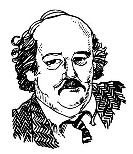(Syndicated to Kansas newspapers June 23, 2014)
 Remember all that talk you hear about “local control” and government “that is closer to the people” being the best government?
Remember all that talk you hear about “local control” and government “that is closer to the people” being the best government?
Lots of talk like that at the Statehouse, because at some point, the Legislature or the whole state is “closer to the people” than, say, Congress.
Well, now comes that other clever little phrase that echoes through the historic halls of the Statehouse: “That’s different…”
Here’s what’s “different” this year:
Local units of government that levy property taxes—that’s cities, counties, townships, community colleges, municipal universities and even drainage districts—starting July 1 will not be able to keep their property tax mill levies the same and receive any more money than the Consumer Price Index inflation indicator allows without telling their constituents what’s going on.
It’s a way—especially as in much of the state property values are finally starting to rise—to prevent property tax-levying local units of government from spending more money (in excess of the rate of inflation) while proclaiming that they haven’t raised taxes. That upward trend of property valuation means property taxes are starting to yield increases in actual dollars to local units of government.
So, if districts keep their property tax levies the same, just receive more than the inflation-adjusted increase in dollars from it, they have to publish their action.
And, property taxes being universally regarded as the most-hated taxes on the books, it probably means that, except for maybe robbing a liquor store, it’s the worst way for a public official to wind up in the newspaper.
(But, the governing body just has to publish as an official notice of their action, and while some legislators liked the idea, the new law doesn’t require mugshots of those tax-raisers to be published.)
The idea, of course, is to hold down local government spending, essentially through the process of bad publicity.
Now, if state revenues increase (above inflation) as a result of sales or income or even liquor taxes, you don’t see legislators taking a public drubbing for that.
It’s just the local officials elected by the same voters who elected legislators to office who have to admit that their taxes are bringing in more money than expected.
See… It’s the “that’s different” phrase at work here.
It probably would have been easier for legislators to just freeze property tax for all local units of government. That would have meant less local spending on parks, swimming pools, police, streets and the like.
But…that would have looked like legislative meddling with “local control” of units of government that are “closer to the people,” don’t you think?
No, cities and counties didn’t like the idea, and they worked during the legislative session to pare down some provisions—and see the inflation adjustment added—but this new law might just change the atmosphere at city hall, the courthouse or the school district.
It might make folks pay a little more attention to local government spending instead of just seeing that the mill levy hasn’t risen, and figure they lucked out.
This local control? Well, we’ll see how well the locals like it and we’ll see what happens to local officials who vote for budgets that include that little notice that puts them on record actually increasing local spending…if they choose to.
